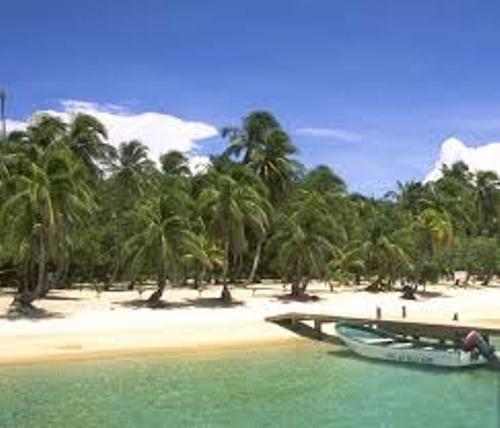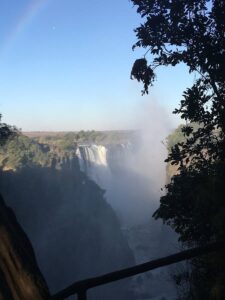Honduras, a country nestled between the Caribbean Sea and the Pacific Ocean, has long been a hidden gem in Central America, often overshadowed by its more prominent neighbors. However, it possesses a rich tapestry of culture, history, and natural beauty that merits exploration. Here are some captivating facts about Honduras that promise to shift your perspective and pique your curiosity.
1. A Historical Legacy of Mayan Civilization
Honduras is home to some of the most significant archaeological sites of the ancient Mayan civilization. Notably, the ruins of Copán, a UNESCO World Heritage Site, reveal intricate stone carvings and ceremonial architecture. These remnants showcase the sophistication of Mayan society, which once prospered in this region, creating a remarkable legacy of art, astronomy, and architecture that continues to intrigue historians and tourists alike.
2. The Caribbean Connection
With approximately 800 miles of coastline, Honduras boasts stunning beaches along the Caribbean Sea. The Bay Islands, particularly Roatán, Utila, and Guanaja, are renowned for their vibrant coral reefs and marine biodiversity. These islands offer an idyllic retreat for snorkelers and divers, attracting eco-tourists from around the world. The Mesoamerican Barrier Reef, the second-largest barrier reef system globally, lies just off these shores, further enhancing the region’s ecological allure.
3. A Diverse Range of Ecosystems
Honduras is characterized by its diverse ecosystems, which range from cloud forests and tropical rainforests to savannas and coastal mangroves. The country is home to several national parks, such as La Tigra and Celaque, where flora and fauna flourish, including various species endemic to the region. The rich biodiversity here presents a unique opportunity for ecological research and conservation efforts, as well as a chance for adventurers to explore unspoiled nature.
4. The Copán Ruins: A Cultural Treasure Trove
The Copán Ruins serve not only as an archaeological site but also as a symbol of cultural resilience. This ancient Mayan city, often referred to as the “Paris of the Maya,” contains elaborate stelae and altars adorned with inscriptions, illustrating the artistic prowess of the Mayans. The site invites visitors to ponder the complexities of a civilization that thrived more than a millennium ago, leaving behind enigmatic carvings that still baffle modern scholars.
5. A Tapestry of Ethnic Groups
Honduras boasts a rich cultural mosaic of various ethnic groups, including the Garífuna, who have a unique heritage blending indigenous Caribbean and African influences. This community is known for its vibrant music and dance traditions, particularly the “Punta” dance, which reflects its rich ancestry. The cultural festivals celebrated by the Garífuna and other indigenous groups, such as the Lenca, showcase the diverse heritage that forms the backbone of modern Honduran identity.
6. A Gastronomic Paradise
The culinary landscape of Honduras is as diverse as its people, with dishes that reflect indigenous, Spanish, and Afro-Caribbean influences. One can’t overlook the quintessential plato típico, which features a medley of fried plantains, beans, rice, and meat. Moreover, the country is famous for its seafood, particularly in coastal regions where ceviche and fish tacos are staples. The culinary journey through Honduras tantalizes the taste buds, revealing the nation’s rich agricultural bounty and cultural intersections.
7. The Significance of Coffee
Caffeine lovers might be intrigued to learn that Honduras is the largest coffee producer in Central America. The high-altitude mountainous regions create an ideal microclimate for growing high-quality Arabica beans. The country’s dedication to sustainable coffee farming practices is increasingly gaining international recognition, with many farms emphasizing organic cultivation and fair-trade principles. Coffee tours offer visitors a behind-the-scenes glimpse into the production process, from bean to brew.
8. An Unexplored Ecological Paradise
Honduras is often overlooked in favor of neighboring countries, yet it possesses some of the most unspoiled areas rich with biodiversity. The Río Plátano Biosphere Reserve, another UNESCO World Heritage Site, is a pristine rainforest, home to a plethora of wildlife, including the endangered jaguar. For ecologists and nature enthusiasts, the reserve offers a glimpse into the ecological significance of Honduras, emphasizing the pressing need for conservation efforts amidst increasing threats from deforestation and habitat loss.
9. The Land of the Living Coral
One of the lesser-known facts about Honduras is its role in marine conservation, particularly regarding coral ecosystems. The country has implemented various programs to protect its coral reefs, which face threats from climate change, pollution, and overfishing. The involvement of local communities in conservation and the establishment of marine protected areas highlight a commitment to preserving these ecosystems for future generations, ensuring that the vibrancy of Honduras’s marine life can persist.
10. Vibrant Festivals and Traditions
The vibrancy of Honduran culture is encapsulated in its celebrations and festivals. Events such as Feria Juniana in San Pedro Sula and the Festival de la Salsa in La Ceiba showcase the country’s rich traditions through music, dance, and revelry. These festivities not only foster a sense of community but also invite outsiders to partake in the joyous expressions of Honduran identity, making it an enchanting experience for travelers.
Honduras is a country that extends far beyond its borders and headlines. Its intriguing blend of history, culture, and natural beauty serves as a compelling reminder of the richness found in places often overlooked. Whether through the lens of its ancient ruins, ecological diversity, or culinary delights, exploring Honduras invites a new perspective on this vibrant corner of the world.









